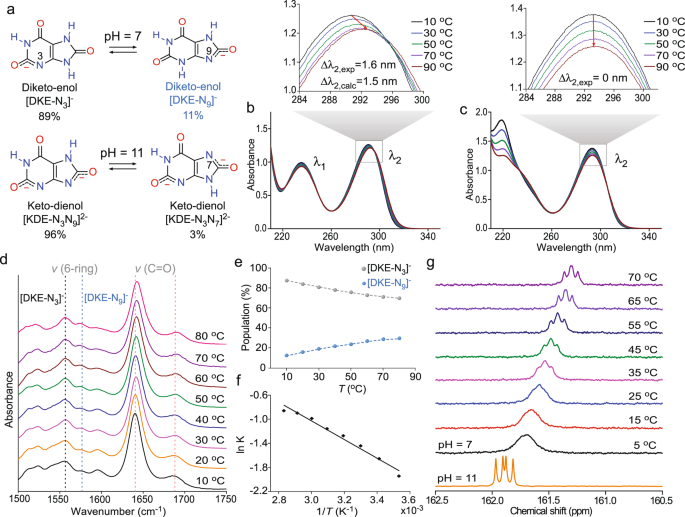2023-02-03 スウェーデン王国・カロリンスカ研究所(KI)

A credit card-sized card with a magnetic strip containing all the important genetic. Photo: The Lancet
◆かなりの割合の患者さんが、薬の副作用を経験しています。私たちはそれぞれユニークな遺伝子を持っているので、同じ薬でも反応が異なります。例えば、ある人は薬の分解が早く、期待される効果を得るためにはより多くの量を必要とすることを意味します。
◆この問題を克服するために、オランダのライデン大学医療センター、カロリンスカ研究所およびその他の共同研究機関の研究者は、最近発表された研究で臨床的に検証された「DNAパス」の原理を開発した。
◆この研究の共著者の一人であるカロリンスカ研究所生理学薬学部の分子毒性学教授Magnus Ingelman-Sundberg氏は、「これは基本的に、特定の患者に関するすべての重要な遺伝データを含む磁気ストリップが付いたクレジットカードサイズのカードです」と説明します。「患者のカードをスキャンすると、医師や薬剤師は、その人に最適な薬の量を計算することができるのです」。
◆この研究は、2017年3月から2020年6月にかけて、ヨーロッパ7カ国から約7000人の患者を対象に、薬物代謝、輸送、副作用に重要な12の特定遺伝子の変異に関して、全員が遺伝子型判定を受けたものである。その後、すべての参加者は、従来通り、または遺伝子型に基づく修正を加えた薬剤を投与されました。
◆薬物治療が始まってから12週間後に、下痢、痛み、味覚異常などの副作用について、専門看護師が患者に連絡した。この研究では、薬物を代謝する酵素をコードする遺伝子を分析することで、薬物に対するこのような副作用を大幅に減らすことができると結論づけた。
◆世界的に見ても、副作用の問題は相当なものである。EUでは、年間12万8千人が死亡し、全入院患者の9%が副作用で、70歳以上では2倍以上の20%が副作用で入院している。さらに、副作用のコストは高く、スウェーデンだけでも年間120億から150億クローネにのぼると推定されています。
<関連情報>
- https://news.ki.se/genetic-analysis-can-reduce-adverse-drug-reactions-by-30-per-cent
- https://www.thelancet.com/journals/lancet/article/PIIS0140-6736(22)01841-4/fulltext
副作用予防のための12遺伝子薬理遺伝学的パネル:非盲検、多施設共同、クラスター無作為化クロスオーバー実施試験 A 12-gene pharmacogenetic panel to prevent adverse drug reactions: an open-label, multicentre, controlled, cluster-randomised crossover implementation study
Jesse J Swen, Cathelijne H van der Wouden, Lisanne EN Manson, Heshu Abdullah-Koolmees, Kathrin Blagec, Tanja Blagus, Stefan Böhringer, Anne Cambon-Thomsen, Erika Cecchin, Ka-Chun Cheung, Vera HM Deneer, Mathilde Dupui, Prof Magnus Ingelman-Sundberg, Siv Jonsson, Candace Joefield-Roka, Katja S Just, Mats O Karlsson, Lidija Konta, Rudolf Koopmann, Marjolein Kriek, Thorsten Lehr, Christina Mitropoulou, Emmanuelle Rial-Sebbag, Victoria Rollinson, Rossana Roncato, Matthias Samwald, Elke Schaeffeler, Maria Skokou, Prof Matthias Schwab, Prof Daniela Steinberger, Prof Julia C Stingl, Roman Tremmel, Richard M Turner, Mandy H van Rhenen, Cristina L Dávila Fajardo, Vita Dolžan, George P Patrinos, Munir Pirmohamed, Gere Sunder-Plassmann, Giuseppe Toffoli, Henk-Jan Guchelaar, on behalf of the Ubiquitous Pharmacogenomics Consortium
The Lancet Published:February 04, 2023
DOI:https://doi.org/10.1016/S0140-6736(22)01841-4
Summary
Background
The benefit of pharmacogenetic testing before starting drug therapy has been well documented for several single gene–drug combinations. However, the clinical utility of a pre-emptive genotyping strategy using a pharmacogenetic panel has not been rigorously assessed.
Methods
We conducted an open-label, multicentre, controlled, cluster-randomised, crossover implementation study of a 12-gene pharmacogenetic panel in 18 hospitals, nine community health centres, and 28 community pharmacies in seven European countries (Austria, Greece, Italy, the Netherlands, Slovenia, Spain, and the UK). Patients aged 18 years or older receiving a first prescription for a drug clinically recommended in the guidelines of the Dutch Pharmacogenetics Working Group (ie, the index drug) as part of routine care were eligible for inclusion. Exclusion criteria included previous genetic testing for a gene relevant to the index drug, a planned duration of treatment of less than 7 consecutive days, and severe renal or liver insufficiency. All patients gave written informed consent before taking part in the study. Participants were genotyped for 50 germline variants in 12 genes, and those with an actionable variant (ie, a drug–gene interaction test result for which the Dutch Pharmacogenetics Working Group [DPWG] recommended a change to standard-of-care drug treatment) were treated according to DPWG recommendations. Patients in the control group received standard treatment. To prepare clinicians for pre-emptive pharmacogenetic testing, local teams were educated during a site-initiation visit and online educational material was made available. The primary outcome was the occurrence of clinically relevant adverse drug reactions within the 12-week follow-up period. Analyses were irrespective of patient adherence to the DPWG guidelines. The primary analysis was done using a gatekeeping analysis, in which outcomes in people with an actionable drug–gene interaction in the study group versus the control group were compared, and only if the difference was statistically significant was an analysis done that included all of the patients in the study. Outcomes were compared between the study and control groups, both for patients with an actionable drug–gene interaction test result (ie, a result for which the DPWG recommended a change to standard-of-care drug treatment) and for all patients who received at least one dose of index drug. The safety analysis included all participants who received at least one dose of a study drug. This study is registered with ClinicalTrials.gov, NCT03093818 and is closed to new participants.
Findings
Between March 7, 2017, and June 30, 2020, 41 696 patients were assessed for eligibility and 6944 (51·4 % female, 48·6% male; 97·7% self-reported European, Mediterranean, or Middle Eastern ethnicity) were enrolled and assigned to receive genotype-guided drug treatment (n=3342) or standard care (n=3602). 99 patients (52 [1·6%] of the study group and 47 [1·3%] of the control group) withdrew consent after group assignment. 652 participants (367 [11·0%] in the study group and 285 [7·9%] in the control group) were lost to follow-up. In patients with an actionable test result for the index drug (n=1558), a clinically relevant adverse drug reaction occurred in 152 (21·0%) of 725 patients in the study group and 231 (27·7%) of 833 patients in the control group (odds ratio [OR] 0·70 [95% CI 0·54–0·91]; p=0·0075), whereas for all patients, the incidence was 628 (21·5%) of 2923 patients in the study group and 934 (28·6%) of 3270 patients in the control group (OR 0·70 [95% CI 0·61–0·79]; p <0·0001).
Interpretation
Genotype-guided treatment using a 12-gene pharmacogenetic panel significantly reduced the incidence of clinically relevant adverse drug reactions and was feasible across diverse European health-care system organisations and settings. Large-scale implementation could help to make drug therapy increasingly safe.
Funding
European Union Horizon 2020.


